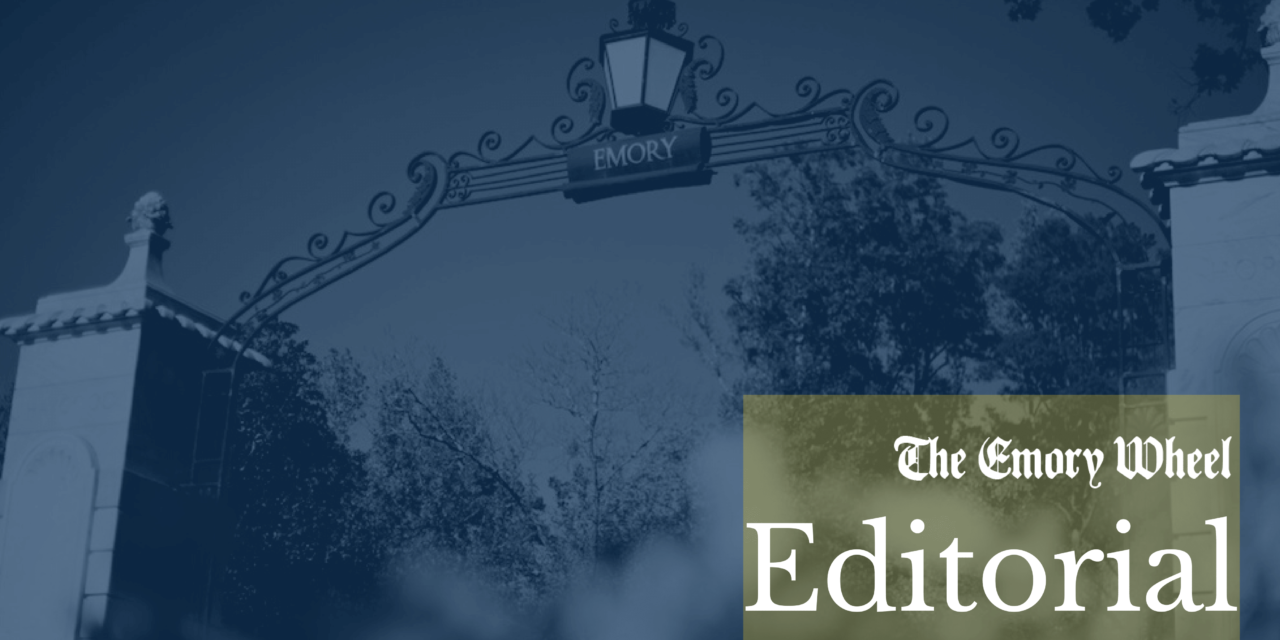In its 185-year history, Emory University has never had a non-white president, and Claire E. Sterk has been the first and only female president. But in light of Sterk’s recent resignation announcement, even that deviation from the norm might come to an end. Emory’s next president should be an advocate for diversity, in addition to a champion of student and community engagement.
Our next leader will be in charge of a $7.3 billion endowment, Emory University Hospital (EUH) network and an ever-growing University system that’s building new facilities all across Atlanta. However, Emory’s next president must foster growth beyond solely our endowment. We expect the Presidential Selection Committee to prioritize diversity, student engagement and administrative stability in choosing their final candidates.
As Emory touts a commitment to diversity in its admissions materials and website, it must carefully consider the importance and inclusivity of its presidential search process. The Presidential Selection Committee must ensure that its candidates hail from a variety of backgrounds and undergo a fair hiring and candidate selection process. Given that several studies suggest that it is more difficult for women and people of color to get jobs for which they are just as qualified as white men, the committee should do its best to mitigate implicit bias in hiring practices. The committee can try to do so by using software to filter through a pool of initially qualified candidates or by standardizing the interview process across individuals as the Harvard Business Review suggests. The committee should do everything in its power to ensure that women and people of color have the opportunity to be considered for the position just as much as their white male counterparts.
In addition, the candidates should be committed to diversifying the rest of the Emory faculty and ensuring that those new hires have a fair shot at receiving tenure. As detailed in Emory’s 2016 Class and Labor Report, both women and racial minorities are significantly underrepresented in Emory’s tenure-track faculty, and professors are speaking out on this critical issue; in December 2019, the Wheel published a letter from various College faculty criticizing the low representation of Native Americans in Emory’s faculty. Unfortunately, this lack of representation at Emory follows broader trends of underrepresentation in tenure-track positions in higher education. As Emory’s student body grows increasingly diverse, our next president should implement effective implicit bias training and other measures to push the University toward greater inclusivity of diverse faculty, staff and students.
The new president should also foster an environment of open expression where students feel comfortable expressing their opinions. In the recent past, our presidents have faced backlash for their misguided responses to student activism, including Sterk’s response to campus protests during Israel Week and Israel Apartheid Week.
These situations could have been mitigated by regular presidential engagement and interaction with students: if the president meaningfully engages with students beyond campus-wide emails, he or she can remain informed about what problems the students are continuously concerned about. While Sterk has taken part in the Conversations on the Quad program, which allows students to talk openly with University administrators, the initiative seemed more ornamental than functional. We want a president who makes an extended attempt to interact with students, through hosting office hours, attending several student events and making their admiration for student engagement well-known.
Students did not expect Sterk to resign after only four years in the position. Her resignation has raised several unanswered questions about stability within the upper ranks of the University. Though the search committee cannot necessarily guarantee a long tenure for the next president, it must work to develop stability within the administration. Frequent turnover in the higher levels of the University administration — namely, the departures of Sterk and former provost Dwight McBride after four and two years, respectively — does not help further the University’s goals, especially in light of its recent real-estate expansions into Atlanta and greater Georgia. These kinds of ambitious goals require consistent and competent leadership to see them through to completion. A president who will stick around could both build on existing long-term relationships and forge new ones. Additionally, a firm commitment to the University would have the added benefit of improving the president’s perceived accessibility.
The president’s role should be to execute on the University’s goals on a macroscale, but student and faculty concerns can sometimes get lost in the complicated network of deans’ and provosts’ offices. The most qualified candidate would make it easy for complaints to get to their desk with regular, intuitive outreach to the Emory community through email and social media. They would also be a visible and consistent presence on campus while still attending to myriad other responsibilities.
The next president will be the public face of Emory University, hopefully for many years to come. Whoever is selected to be the University’s next president will encounter controversies and challenges that demand thoughtfulness, a staunch commitment to fairness, and an ability to manage and lead Atlanta’s largest employer. Sterk’s successor must prioritize a commitment to diversity and inclusivity, just one of many requirements that must be met if Emory is to continue to lead in health care and higher education in the decades to come.
The Editorial Board is composed of Zach Ball, Devin Bog, Jake Busch, Meredith McKelvey, Andrew Kliewer, Boris Niyonzima and Nick Pernas.
The Editorial Board is the official voice of the Emory Wheel and is editorially separate from the Wheel's board of editors.




